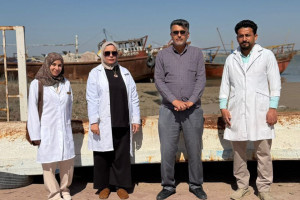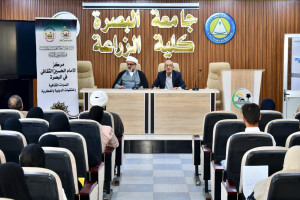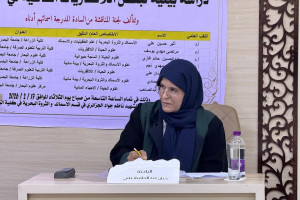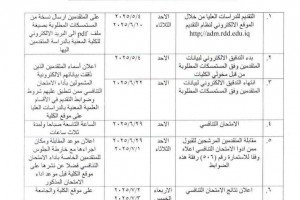
I discussed a master's thesis at the College of Agriculture at the University of Basrah Response of the bean crop and silicon spraying under salinity-affected soil conditions. Researcher Raad Yousef Taher's message included adding three levels of potassium 0, 80 and 160 kg KH-1 and spraying four levels of silicon 0, 3, 6 and 9 mmol L-1. The results of the study showed the superiority of the potassium addition treatment 80 kg KH-1 in most of the studied traits, as it recorded the highest mean of seed yield and protein yield, while the concentration 160 KH-1 recorded the highest average of the harvest index, and the results indicated that the silicon concentration 9 mmol L-1 exceeded In most of the studied traits, the highest mean of plant height, branching and number of leaves was recorded. The interaction between potassium and silicon had a significant effect on some growth characteristics, yield and qualitative characteristics, as the combination of 80 kg H-1 and 9 mmol L-1 gave the highest average number of pods, seed yield and protein yield. The thesis aims to study the effect of three levels of potassium and four levels of silicon, mmol liter-1, and the interaction between them on the growth and yield of beans in salinity-affected soil. The thesis recommended adding potassium to the bean plants cultivated in the soils of southern Iraq with a high level of salt, with an amount of 80 kg KH-1. Silicon can also be sprayed on bean plants grown in saline soil at a concentration of 9 mmol l-1, because of its positive effects, and a higher concentration can be studied because of the response of the bean crop to silicon spray.







